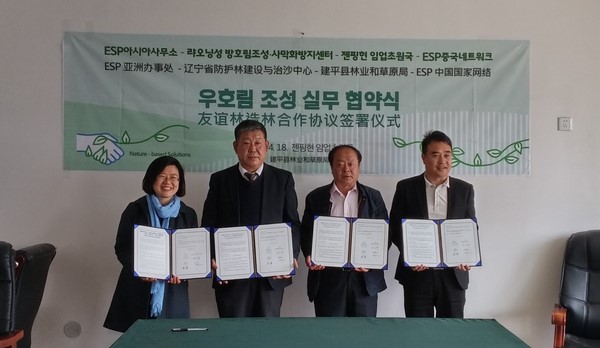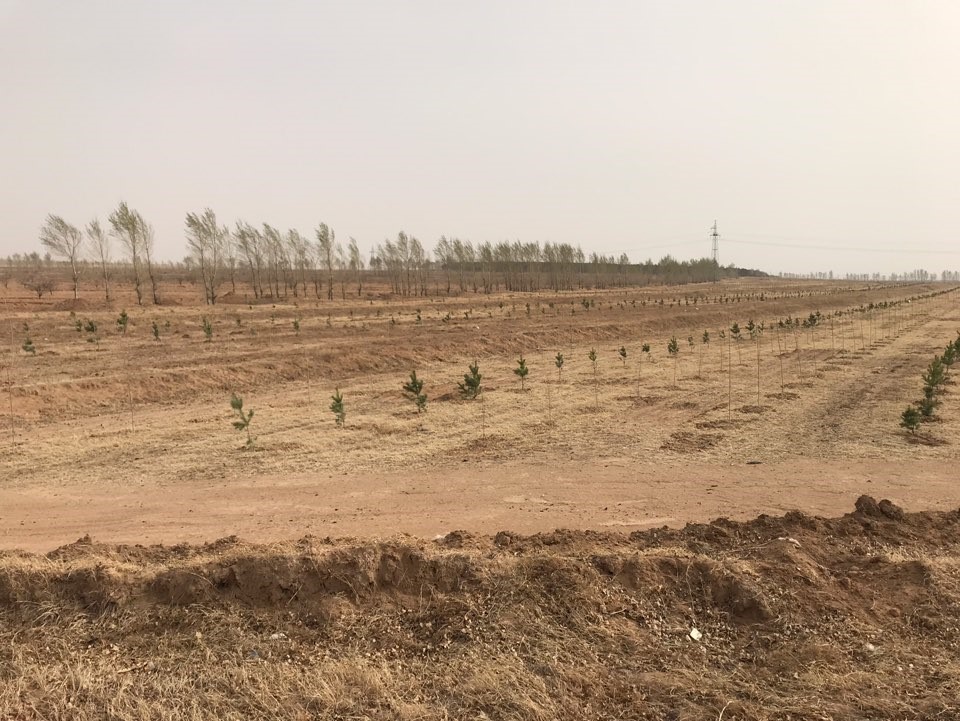Gyeonggi-Liaoning Afforestation Project in Northern China supported by ESP Asia and ESP China
Gyeonggi provincial government(ROK) and Liaoning government(China) have collaborated to combat desertification in northeast China by creating artificial forests in Jianping county since 2017. Jianping county is located at the border of inner-Mongolia, extremely influenced by desertification and belongs to the belt of “Great Green Wall” , the biggest greening project to push back deserts in the world.
This year, ESP Asia office in collaboration with ESP China started working together to support successful implementation of the afforestation project of these two provinces. Last April, five agencies of ESP Asia, Liaoning government, Jianping county office, Heisui forest farm, and ESP China gathered together to share common challenges and discussed about cooperative ways to improve the outcome of the project. The size of the artificial forest to be created is 36.8ha this year and 5 tree species were planted : Populusx “Tonglin5”, Salix matsudana koidz, Pinus sylvestris L. var. mongolica Litv, Ulmus pumila L, Prunus sibirica L.
Project partners expect this project will continue to restore ecosystem services in this region in upcoming years. If there is any case of the impact of afforestation project on ES restoration to compare, please contact [email protected] for further collaboration.
Find more information here (in Korean).


